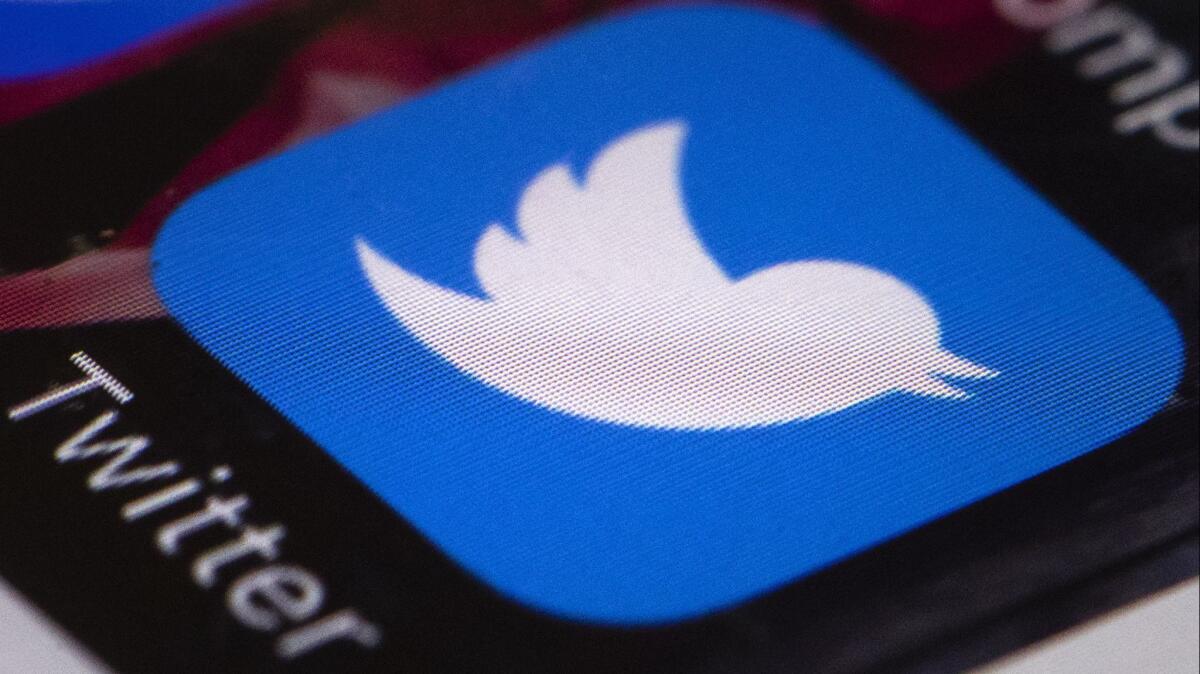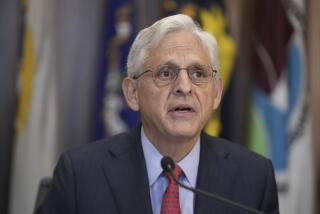Editorial: Social media platforms are struggling against disinformation by foreign governments. Trump isn’t helping

Facebook, Twitter and other major social media companies have once again removed hundreds of accounts from their services that were linked to foreign agents trying to meddle in U.S. politics and policies — as well as the affairs of other governments. The malefactors identified last week weren’t just Russians; they also included individuals allied with the Iranian government, who’d apparently been using bogus identities to distribute propaganda at least since 2011.
So, what did President Trump have to say about Facebook et al. last week? He lashed out at the “Social Media Giants” (on Twitter, of course) who, he wrote, “are silencing millions of people.” He added, “People have to figure out what is real, and what is not, without censorship!”
Trump seemed to have ignored the misdeeds of foreign players on social media, going to bat instead for Alex Jones, a conspiracy-peddling Trump ally who was recently banned or sanctioned by multiple outlets. He’s right that users of social media have an important role to play in combating disinformation online. They need to stop believing — and gleefully spreading — the “news” planted by foreign agents. But it’s ridiculous to call for a hands-off approach that would let these platforms be weaponized by those eager to manipulate American opinion and weaken our democracy.
Enter the Fray: First takes on the news of the minute from L.A. Times Opinion »
It’s bad enough that Trump has gone back and forth about whether Russia meddled in the 2016 election through its fake Facebook accounts and pages. What’s worse is that, rather than helping social media companies catch up to the foreign operatives abusing their platforms, Trump and his GOP allies in Congress are actively pushing back against the companies’ efforts to clean up their platforms. Republicans keep obsessing over supposed anti-conservative bias rather than proven foreign meddling.
It’s not clear what, if anything, the public wants the government to do about the spread of propaganda online. Surveys suggest that social media users want the companies to do a better job policing themselves, especially on privacy and security. A company enforcing its own rules against false or offensive speech isn’t censorship or a 1st Amendment violation; free speech issues come into play only if the government does the policing.
Noting the lack of consensus, former CIA Director John Brennan — who called out the Russian meddling before the 2016 election, and whom Trump recently stripped of his security clearance for his sharp criticism of the president — said Congress should establish an independent, bipartisan commission to examine how to ensure Americans’ safety, prosperity and liberties in a complex “digital environment” that’s extending into more and more areas of daily life. In an interview Friday with the L.A. Times’ editorial board, Brennan said similar panels that examined the 9/11 attacks and the allegations of Iraqi weapons of mass destruction found areas of common ground and came up with useful reforms.
Meanwhile, the spotlight Congress has trained on the top social media companies has increased the pressure on them to take seriously a problem that Facebook CEO Mark Zuckerberg once publicly waved off. The Trump administration also has talked about responding more forcefully to malicious behavior online, which might finally provide a deterrent. But instead of leading, the president is undermining the efforts to protect social media users from honest-to-goodness fake news.
Follow the Opinion section on Twitter @latimesopinionand Facebook
More to Read
A cure for the common opinion
Get thought-provoking perspectives with our weekly newsletter.
You may occasionally receive promotional content from the Los Angeles Times.










